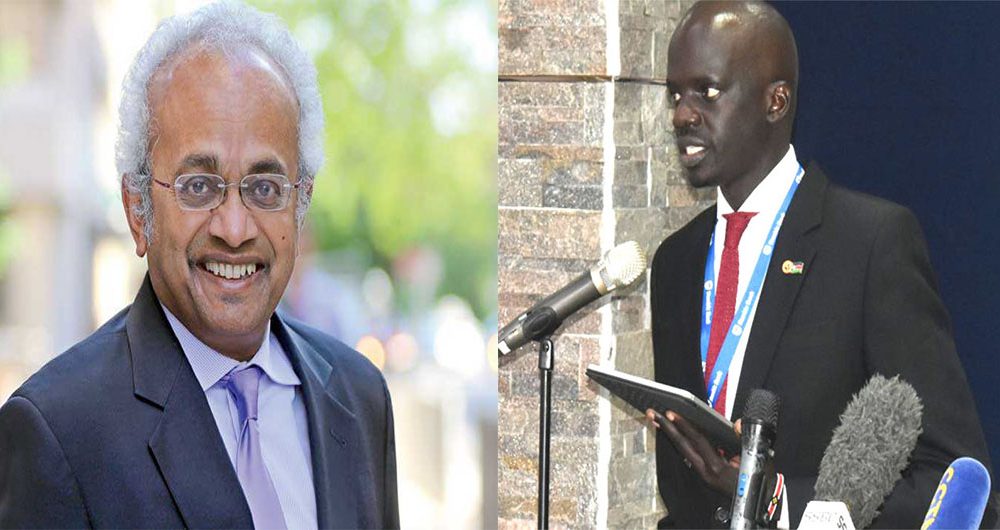By William Madouk
A senior economist has suggested that South Sudan’s government distributes oil proceeds to citizens through cash transfer with a tax stipend as a proper way of managing the oil revenues.
Prof. Shanta Devarajan, a Senior Director for Development Economics (DEC) and ex-acting Chief Economist at the World Bank Group, made the proposal during the third day of South Sudan Economic Conference in Juba.
He said that distribution of the oil proceeds to citizens through direct cash transfer would ensure accountability and reduce corrupt practices in the country.
“If you look at resource-rich countries… and look at accountability, there is zero in the government sector, and you can observe that in poor countries. Their level of accountability is all lower than that of those who are actually very rich countries,” said Shanta.
He said the government’s preference to invest petrodollars into infrastructure could spur economic growth; however, weak intuitional capacity and political benevolence have resulted in skewed corruption.
Mr. Shanta claimed that the protracted conflict was due to the government having a hand in oil proceeds; thus, whoever gets control of the state will have a hold on oil revenue, but to him, giving cash transfers to citizens will stop this phenomenon.
“The problem is that the government has access to a source of revenue for which it is not accountable,” he continued.
To him, when the government gets a grasp on oil proceeds, they turn blind eyes to accountability, as such, and distributing oil revenues as a new method would yield fruit.
“Why is it that the money for resource directories goes from the oil company, passing through the hands of citizens by contrast with taxes? he added. “Its citizens and the government have to be able to get services to pay taxes,” the professor suggested.
However, Professor Shanta’s proposal countered stiff resistance from the petroleum minister, Puot Kang, who urged for restraint.
Chol, who cherished the presentation, said such a proposal would only take effect unless the constitution is amended.
“On the use of oil proceeds, the constitution of the Republic of South Sudan, Article 1.73, says that the oil is basically for the people of South Sudan but shall be developed and managed by the government,” Kang said.
“And on the process of management, it is the government that budgets for it and allocates the proceeds, meaning there is no way or it will not happen until the people of South Sudan work on the constitution to give the money directly,” he noted.
The third day of the national economic conference focused on how revive agriculture, improve livestock and fisheries production to fix South Sudan’s broken food basket, enhance economic development and using oil revenue to spur inclusive growth.
Oil revenues constitute more than 98% of the government’s budget.
South Sudan currently produces about 150,000 to 170,000 barrels of oil per day but only earns income from 45,000 barrels after the share owed to international companies and fees paid to Sudan.
Oil revenue, in 2019, accounted for over 98 percent of the country’s total budget.




